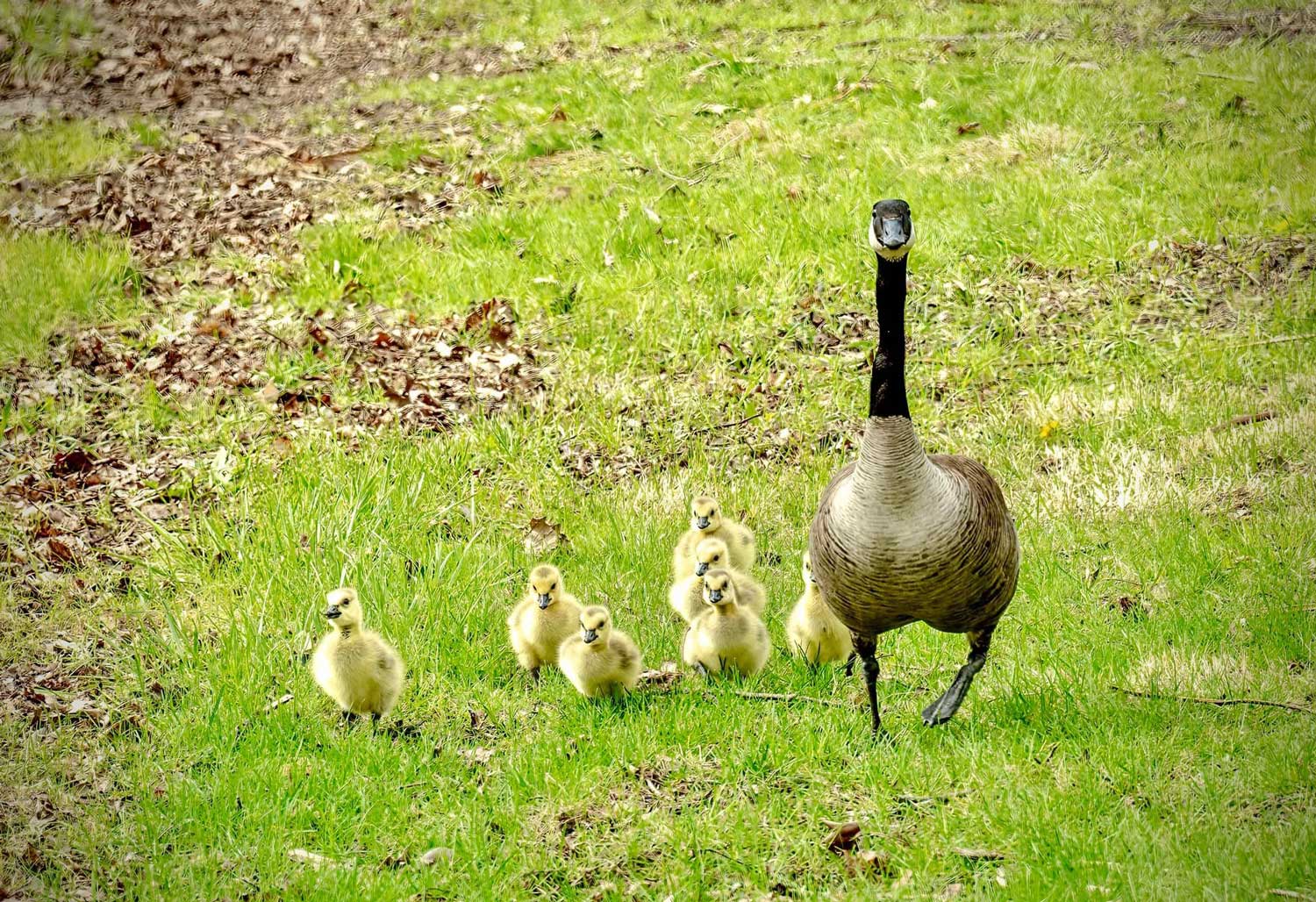How to stay safe around feisty geese during nesting season

Canada geese have a bit of a reputation for being mean and aggressive, but what we consider bad behavior is really just their way of protecting themselves, their nests and, eventually, their offspring. At this time of year, though, with nesting season in full swing, encounters with feisty geese can become common.
These encounters with Canada geese are more likely in spring because Canada geese often nest close to humans. They don't see humans as a direct threat, so they are comfortable nesting in places where people are often around.
They nest on the ground, preferring prefer elevated spots like muskrat mounds, according to the Cornell Lab of Ornithology. They typically build their nests within about 150 feet of water, looking for open areas so they can see around them in all directions to monitor for potential threats.
Females usually do most of the nest building, and they are the ones to incubate the eggs. Males will typically stand guard nearby, and this is where conflicts with humans often arise.
As nesting season progresses, geese can become more stressed and act more aggressively toward people and other potential threats that get near their nests. Signs they are bothered by your presence include honking, lowering their heads and spreading their wings to create an aggressive posture.
Your instinct may be to turn and run away, but this is exactly what you should not do. Instead, if you're confronted by a goose, maintain eye contact with it and stand your ground, according to The Humane Society of the United States. Once you've made eye contact, move slowly and sidestep and back away. Do not make a lot noise or any quick movements.
Breeding season for geese is brief, beginning in mid-March with nest construction and continuing through the first part of spring, according to the Illinois Department of Natural Resources. Eggs are incubated for about a month before hatching, and once hatched the goslings stay in the nest for about a week with the female tending to them.
After goslings leave the nest, they stay with their parents for awhile. Their parents will still be protective, but they'll be less aggressive overall because both the parents and the goslings will be able to move away from potential threats.
It's not just geese that may be a little territorial and confrontational in the spring. This time of year is a busy one in the animal kingdom, with many birds and other species either mating, nesting or rearing their offspring. If an animal is reacting to your presence, chances are you are too close.
Canada geese and all native North American birds are protected by the Migratory Bird Treaty Act of 1918, making it illegal to kill or remove the geese or to destroy or disturb their nests, eggs or offspring without a permit from the Illinois Department of Natural Resources. The geese are also protected by the Illinois Wildlife Code.
